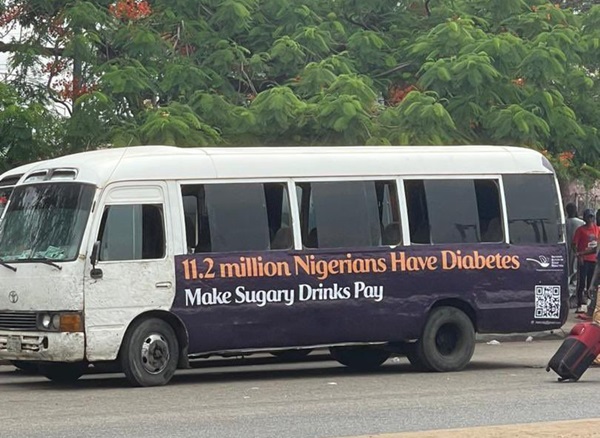
The National Action on Sugar Reduction (NASR) has launched an innovative campaign to combat the health risks of consuming sugar-sweetened beverages (SSBs) in Nigeria.
The initiative aims to educate the public and advocate for policy changes to promote healthier lifestyles amidst growing concerns over the prevalence of non-communicable diseases (NCDs) like diabetes and heart diseases.
NASR’s campaign comes at a critical juncture as research underscores the link between sugary drink consumption and the onset of diseases like type 2 diabetes. According to the World Health Organisation (WHO), NCDs kill 41 million people each year, which is equivalent to 74 per cent of all deaths globally. Tobacco use, physical inactivity, the harmful use of alcohol and unhealthy diets all increase the risk of dying from an NCD.
NCDs are chronic diseases resulting from a combination of genetic, physiological, environmental, and behavioral factors. In Nigeria, NCDs are responsible for about 30 per cent of total deaths. However, most NCDs can be prevented if the risk factors are dealt with. It is against this backdrop that NASR has launched this ambitious campaign to address the alarming rise in NCDs across the country.
NASR’s campaign aims to increase public awareness of the health risks associated with SSB consumption, mobilise support for higher sugary drink taxes, and encourage individuals to make healthier choices. By addressing the root causes of sugar-related health issues, NASR hopes to contribute to a healthier future for Nigeria.
The center-piece of the campaign is a striking bus campaign that features branded buses adorned with imagery depicting the health consequences of excessive sugary drink consumption. Through creative messaging and active community engagement, NASR aims to capture public attention and spur action to address the issue.
NASR volunteers conducted on-the-ground activities to educate communities about the detrimental effects of sugary drinks on health. Complimentary bus rides were also provided along various routes, allowing members of the public to engage with campaign materials and learn about healthier beverage options.
NASR’s coalition spokesperson, Ms. Omei Bongos-Ikwue told the media that the campaign’s objective is to enlighten the public about the perils of excessive SSB consumption and advocate for policies that promote healthier alternatives. She highlighted the significant impact of NCDs on the population, with an estimated 11.2 million Nigerians currently living with type 2 diabetes.
A coalition member of NASR, Ms. Gloria Okwu emphasised the urgency of the issue, stating, “Our objective with this campaign is to enlighten the public about the perils of excessive SSB consumption and advocate for policies that promote healthier alternatives.”
The campaign has received support from the International Federation of Red Cross and Red Crescent Societies (IFRC), which has called for urgent action to address the rising burden of NCDs in low- and middle-income countries like Nigeria.
According to IFRC, NCDs are diseases that are not spread through infection or other people but are typically caused by unhealthy behaviours and genetics. They are chronic diseases that result from a combination of genetic, physiological, environmental, and behavioural factors.
Each year, 17 million people die from an NCD before age 70; 86 per cent of these premature deaths occur in low- and middle-income countries. Cardiovascular diseases account for most NCD deaths, or 17.9 million people annually, followed by cancers, 9.3 million, chronic respiratory diseases 4.1 million, and diabetes, 2 million, including kidney disease deaths caused by diabetes. These four groups of diseases account for over 80% of all premature NCD deaths.
Countries worldwide have implemented taxes on sugary drinks to discourage their consumption, leading to reductions in SSB intake and improvements in public health outcomes. NASR hopes to build on these successes by increasing public awareness of the health risks associated with SSB consumption.
Community engagement, media coverage, and policy changes will measure the campaign’s success. NASR aims to continue to work with stakeholders and partners to promote healthier lifestyles and reduce the burden of NCDs in Nigeria.

